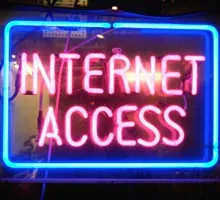What does a grown-up internet look like?
Written by

So the internet's 21 - in New Zealand anyway. Simon Young considers what a grown-up internet looks like and what might be in store for its future.
"The great news is, the childlike fun never has to stop."
* * *
A lot of things happened in 1989. Tiananmen Square. The Berlin Wall. I started high school. And the internet plugged into New Zealand (or vice versa, depending on how you look at it).
It's really, really, really hard to imagine what that pre-internet world was like now, even though I didn't get connected myself until 10 years later. The biggest difference? Knowing stuff.
We know that people aren't going to steal your kidney and leave you in a bath full of ice. We know that Madelyn Murray O'Hair isn't trying to shut down Touched By An Angel. We know because we can Google such things, and our collective gullibility as a culture has gone down a step or two (at least where easily disproved hoaxes are concerned).
But a big question we always get asked in workshops (and one we're always asking ourselves) is what's next? What's the next big thing?
Some of the answers are technical - like location-based social networks, and the incorporation of real, physical objects into databases. But the more interesting question is, how grown up are we as a species in our relationship with this (still) new technology.
Science fiction is replete with cautionary tales of technology becoming the master. The Matrix or the Terminator are formidable foes, but attention deficit disorder is an even more fearsome prospect, even if it doesn't make as exciting a screenplay.
Nicholas Carr is concerned that the internet is rewiring our brains. My usual habit would be to link that phrase, so you can see for yourself what he says, in his own words. But I'm concerned for you, and I don't want you to lose your train of thought, so I won't link it. For your own good.
(Oh alright then).
For those who are concerned, it's worth taking time to reflect (a habit people are worried about losing) on our history as a species. Socrates worried that writing would cause us to lose our ability to remember (ironically we know of Socrates through the written word). The printing press and the book caused great pain to a great many people, and it's only with the comfortable afterglow of hindsight that we see the great social good wrought by the ability to mass produce printed material.
Printing became part of our lives over a very long time. It was about two or three hundred years between the invention of the printing press until newspapers started to be a regular fixture.
Music and film, on the other hand, have sprung up extremely rapidly in just a century (ish), complete with very strict traditions - and the inevitable innovators who push the boundaries from the outside edges.
My point? Change comes. It comes not in one sudden burst, but in a lot of steps. The changes we're going through now may well be happening faster than other changes, but it's still up to us whether they overwhelm us or not.
Will we embrace learned helplessness, and bury our heads in the sand? Will we expect change to be easy, and therefore be confused when it's not?
Or will we take stock of what's really important to us - family, time to think, genuine conversations - and take steps to protect them. And as part of that, we must also challenge the things we think are important - nice-to-haves, but not essentials - and acknowledge that they can change and we won't be worse off.
It's different for everybody. Natural extroverts won't have any trouble in an always-on world. Introverts will need to learn how to switch off (it's more of a conscious decision than ever before, but it's still a decision).
It's very much like the process of moving house, but instead of boxes of stuff, we're having to reassess our boxes of thoughts.
It's disturbing, but when you've had a good clean out, you are refreshed and ready to start again.
I've moved house a lot in the last three years. After a few moves, you start to get the idea that lean is good. Baggage is not helpful.
It's the same with thinking, and it's the very grown-up approach we're going to need for the next 21 years of the New Zealand internet.
The great news is, the childlike fun never has to stop, even with being grown up and all. You've had the lecture, now it's time to play: